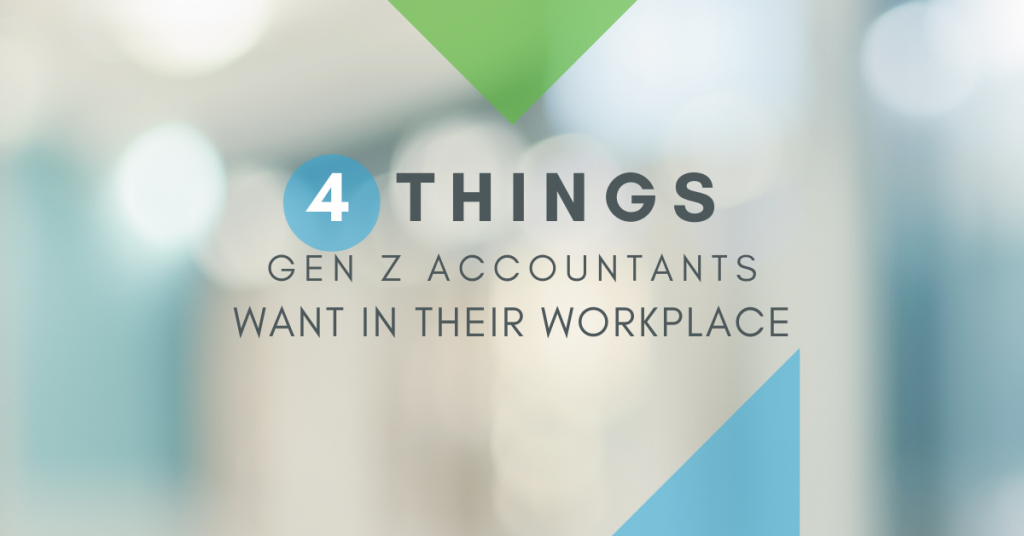Who Is Gen Z?
Generation Z or Gen Z, people born after 1995, has been slowly entering the workforce since around 2013 and is the largest, most diverse and inclusive generation yet. According to the Huffington Post, “By 2020, they will account for one-third of the U.S. population, certainly worth paying attention to.” Because of their sheer numbers, they are positioned to become a major catalyst of change in their future workplaces.
These unique and savvy digital natives are independent, entrepreneurial, have high expectations of their work environment, and are joining the workforce at earlier ages than the previous generation.
What Gen Z Wants in the Workplace
- Independence.
According to Forbes, Gen Zers want their independence and, “They don’t want to depend on other people to get their work done.” They’re driven by personal responsibility and want to work in positions of leadership, sooner than later. This type of working independence translates to Gen Zers preferring their own office spaces instead of open floor-plan, countering the collaborative work spaces Millennials preferred.
- Flexibility.
Gen Zers crave the flexibility of a work/life blend, what David Stillman, a generational expert, describes as the ability for them to do their work, but be fully engaged in their life at the same time. This could be problematic for some employers when their Gen Z employees are working on their personally branded Website during company time or engaging on social media in the middle of the work day.
- Value & Recognition.
Ernst & Young (EY) conducted a multigenerational survey of 1,800 people across the United States entitled, “Next-Gen Workforce: Secret Weapon or Biggest Challenge?” In their research, they discovered the top three benefits Gen Z employees want in their workplace are health insurance coverage, feeling valued for their ideas and being recognized for their work contributions. Gen Z employees want face-to-face feedback and recognition for their work on a more regular basis – not just during their annual review.
- Job Security & Career Growth Opportunities.
Gen Zers are more interested in career path development over obtaining a higher salary. In Udemy’s interview with Aaron Levy, CEO and Founder of Raise the Bar Consulting, Levy states that 87% of Gen Zers said professional development was important for their careers and rated growth opportunities as their number one priority. Levy goes on to say that they truly value a “…larger meaning and purpose in their work.” A Gen Z employee will trust and want to work for an accounting firm that values their development and career advancement as much as they do.
Related Article
The Future of Recruiting: From Cookie Cutter to an Agile Mindset
The HR Technologist believes that Gen Z, “…will begin to truly disrupt workplace norms starting next year, so HR executives, and organizations as a whole, need to understand their future employees’ defining characteristics in order to harness their talents and skills to help their businesses grow.” So, how can accounting firms start preparing to recruit, train, and retain top professionals in the new generation of employees?
Deloitte’s article, “Generation Z Enters the Workforce” states:
Most Gen Z professionals prefer a multidisciplinary and global focus to their work, with the expectation that this can create opportunities for mobility and a rich set of experiences. Organizations can help meet this need through structured rotation programs, both internally and with key enterprise partners. Broadening the deployment approach in this way could help drive the engagement—and development—of Gen Z talent, retaining those employees who will be better equipped for long-term success.
Although the affects that Gen Z will have on accounting firm culture are purely speculative at this point, there’s good indication that the new generation will create a sizable shift in workplace expectations. Accounting firms will need to start considering new ways to approach talent acquisition and retention now in preparation for the next generation of accountants entering the workforce over the next few years.
Sources
8 Key Differences between Gen Z and Millennials
What 5,000 Gen Z’ers Tell Us About the Future of Work
Why Transparency Is The Key To Integrating Generation Z In The Workplace
What you need to know as Gen Z enters the workforce
Why Career Pathing Can Backfire with Millennials and Generation Z
3 Ways Gen Z Will Start to Change the Workplace in 2018
Generation Z enters the workforce
